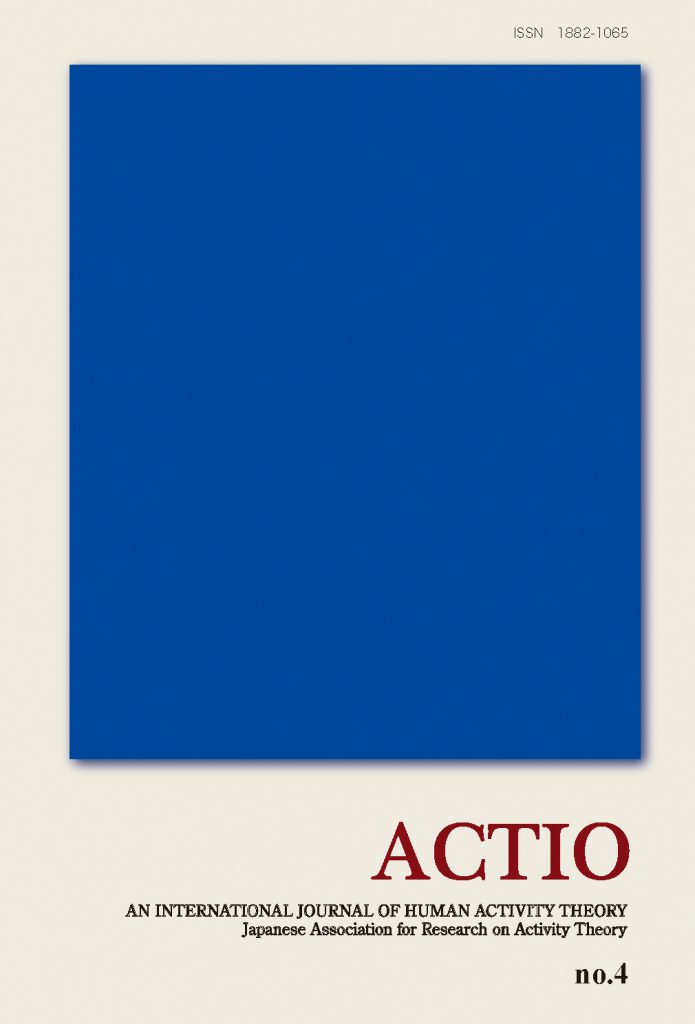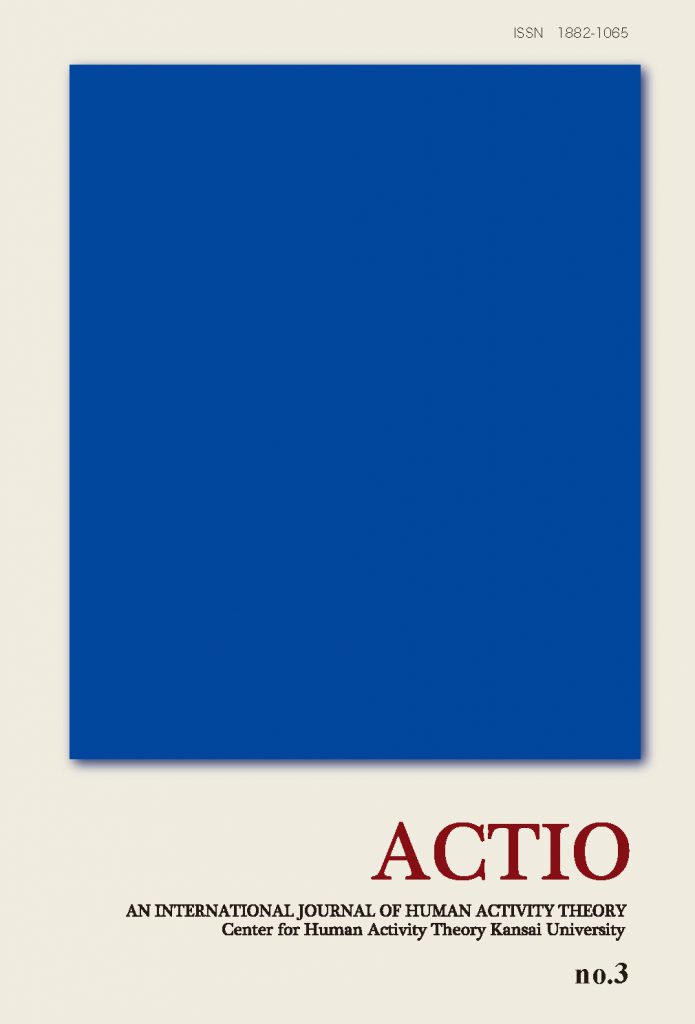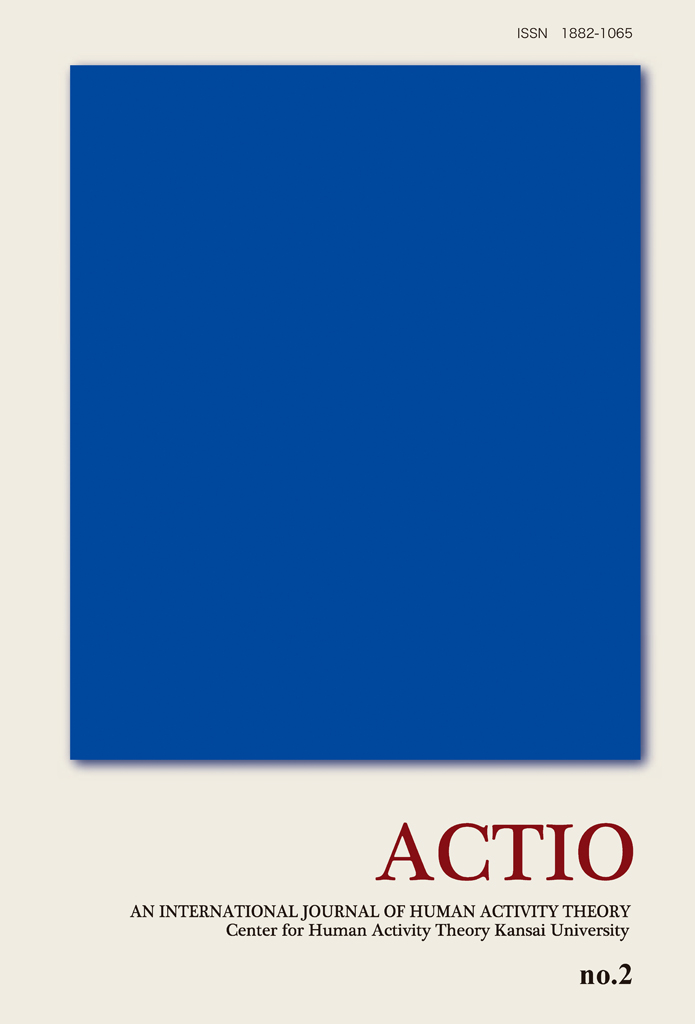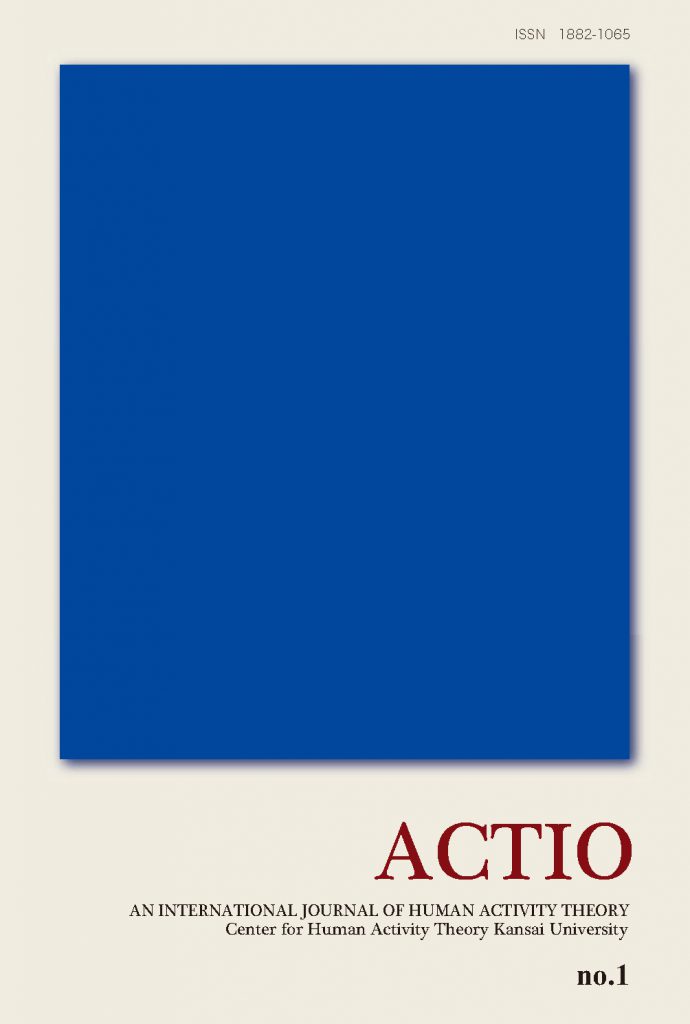Actio: An International Journal of Human Activity Theory is published from the Japanese Association for Research on Activity Theory (JARAT). Its aim is to advance challenging and outstanding research in the field of cultural-historical activity theory. Actio intends to deliver cutting-edge research papers that encourage theoretical, methodological, and empirical discussion and promote the creation of new theoretical concepts and analytical tools in this field and related ones.
Notes to Contributors
Submissions of manuscripts: Please note the following points. 1. Manuscripts should be written in English. 2. Assuming approximately 600 words per page, the maximum lengths are 30 pages, including title, abstract, references, figures, tables, and line drawings. 3. Manuscripts should be typewritten, doublespaced, on one side of A4 size or US standard size paper. 4. Each manuscript must be accompanied by an English abstract of up to 300 words, a list of up to 10 English key words listed in order of importance, and a running head (short title) should be clear and brief, typed on a separate page. 5. References should be cited in the text, each with the last name of the author followed by the publication date enclosed within parentheses as follows: Engeström (1987), Cole and Engeström (2007). Use ‘et al.’ for more than three authors. The letters ‘a, b, c …’ should be used for different works by the same author in the same year. All text references should be listed alphabetically after the notes, as follows: Engeström, Y. (1987). Learning by expanding: An activity-theoretical approach to developmental research. Helsinki: Orienta-Konsultit. Yamazumi, K. (2005). School as collaborative change agent. In K. Yamazumi, Y. Engeström, & H. Daniels (Eds.), New learning challenges: Going beyond the industrial age system of school and work (pp. 11-45). Suita, Osaka: Kansai University Press. 6. Tables and figures should be on separate sheets and numbered with Arabic numerals in order of appearance in the text. Their location in the text must be clearly indicated. Line diagrams should be presented as camera-ready copy. 7. Authors should send their electronic version of manuscripts to Professor Katsuhiro Yamazumi’s office at Kansai University: kyamazum [a] kansai-u.ac.jp. Manuscripts are not returned.
PRODUCTION NOTES: Authors’ files are copyedited and typeset into page proofs. Contact authors bear sole responsibility for reading proofs to correct errors and answer editors’ queries; authors may order reprints of their articles when they receive the proofs.




